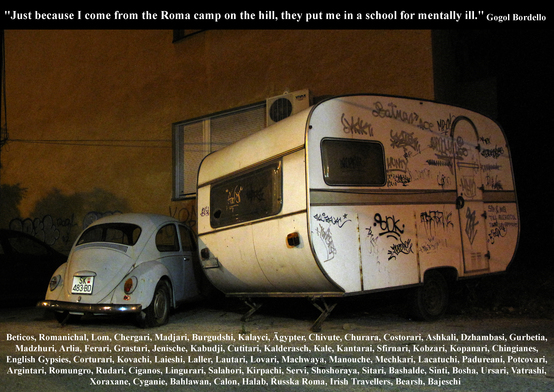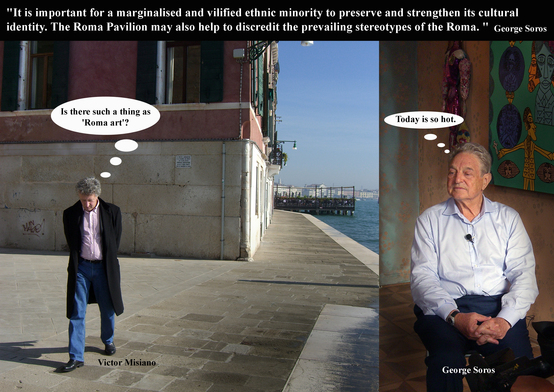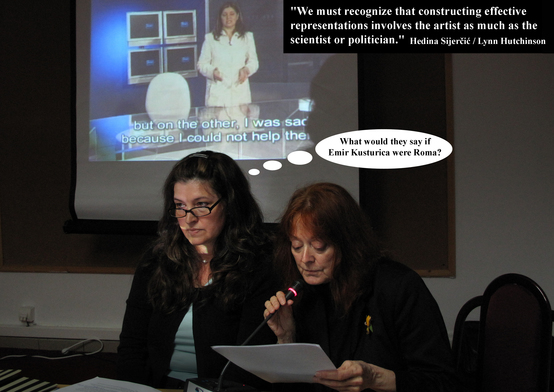-
-
-
Venice Mahala Opus2011, series of photographs as postcards, color, leporello format
-

Nihad Nino Pušija, Venice Mahala Opus, 2011, photo from the series, courtesy the artist
-

Nihad Nino Pušija, Venice Mahala Opus, 2011, photo from the series, courtesy the artist
-

Nihad Nino Pušija, Venice Mahala Opus, 2011, photo from the series, courtesy the artist
-
The photo-novella project Venice Mahala Opus (2011) is imagined as a kind of a personal archive/report on the complexities of the development of the Call the Witness project. Pušija’s artistic responses to different stages of the discussions, varying from intense political and theoretical challenges to humorous and anecdotal observations, are actually digital photo-collages made of documentary photographs and recorded statements by the participating artists and other collaborators (researchers, artists, curators, etc.) involved in the project’s development. Through juxtaposition of different sources and strategies of cross-referencing, the artist’s series of fold-out postcards in leporello format addresses many of the sensitive and complicated questions that were generated during this project including: what kind of institutional powers are still used by gadje (non-Roma individuals) to keep the “subaltern” from speaking?; who owns the copyright to Roma history?; and who is entitled to make art about the Roma? (Suzana Milevska)
-
NIHAD NINO PUŠIJA (born 1965) is a photographer. His work focuses on documentary and portrait photography and aims at capturing Roma identity in Berlin—where he has been based for the past twenty years—and elsewhere in Europe. Since 1992, he has worked on several photography projects and studies ,exploring themes such as conflict resolution, integration, and the Roma in Europe. Recent exhibitions include: Zigeuner Art, DKV, Dachau, 2011; Duldung Deluxe, ECCHR, Berlin, 2010; Heiß oder kalt [Hot or cold], Haus der Kulturen der Welt, Berlin, 2009; Die vergessenen Europäer [The forgotten Europeans], Kölnisches Stadtmuseum, Cologne, 2008; Parno gras, Ethnographic Museums, Ljubljana, 2009 and Zagreb, 2008; Paradise Lost. The First Roma Art Pavilion, 52nd Venice Biennale, Venice, 2007; and Roma and Gadje, Kortárs Roma Galéria, Budapest, 2006. Pušija lives and works in Berlin.
-
-



